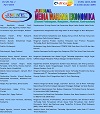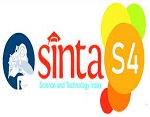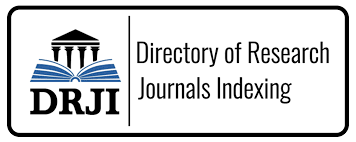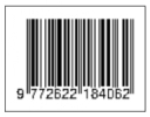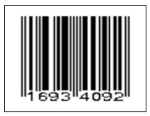Pengaruh Sikap Kerja dan Keterampilan Kerja Terhadap Produktivitas Kerja Kayawan pada PT. Perusahaan Perdagangan Indonesia (PPI)
DOI:
https://doi.org/10.31851/jmwe.v20i1.11513Abstract
ABSTRAK
Penelitian ini bertujuan untuk mengetahui dan menguji hipotesis pengaruh sikap kerja dan terhadap produktivitas kerja karyawan secara
parsial dan simultan. Populasi penelitian ini adalah seluruh karyawan PT. Perusahaan Perdagangan Indonesia. Teknik pengambilan sampel adalah rumus Sampling jenuh didapatkan hasil jumlah sampel pada penelitian ini 36 responden dengan kriteria karyawan yang bekerja di bagian lapangan. Teknik pengumpulan data penelitian menggunakan kuesioner dan dokumentasi. Skala pengukuran menggunakan Skala Likert. Teknik analisis data yang digunakan yaitu uji coba instrumen, uji asumsi klasik, analisis linier berganda, analisis koefisien determinasi, analisis koefisien korelasi dan uji hipotesis menggunakan SPSS Versi 22. Hasil dari penelitian menunjukkan secara parsial variabel sikap kerja berpengaruh signifikan terhadap produktivitas kerja karyawan dan keterampilan kerja berpengaruh signifikan secara parsial terhadap prestasi kerja karyawan dan berdasarkan uji F bersama-sama (simultan) sikap kerja dan keterampilan kerja berpengaruh signifikan terhadap produktivitas kerja karyawan.
Kata kunci :Sikap Kerja, Keterampilan kerja, Produktivitas Kerja.
ABSTRACT
This study aims to determine and test the hypothesis of the influence of work attitudes and work productivity on employees partially and simultaneously. The population of this study were all employees of PT.Perusahaan Perdagangan Indonesia. The sampling technique is the saturated sampling formula. The results obtained from the number of samples in this study were 36 respondents with the criteria of employees working in the field. Research data collection techniques using questionnaires and documentation. The measurement scale uses a Likert Scale. The data analysis techniques used are instrument testing, classical assumption test, multiple linear analysis, coefficient of determination analysis, correlation coefficient analysis and hypothesis testing using SPSS Version 22. The results of the study partially show that work attitude variables have a significant effect on employee work productivity and skills. work has a significant effect partially on employee performance and based on the F test together (simultaneous) work attitudes and work skills have a significant effect on employee work productivity.
Keywords: Work Attitude, Work Skills, Work Productivity.
References
Issakh, Henki Idris. Zahrida Wiryawan. (2014). Pengantar Manajemen. In Media MEDAN. Ekonomi Bisnis Manajemen Dan Akuntansi (EBMA), 1(2), 162-167.
Kaswan. (2015). Sikap Kerja. Bandung: Alfabeta
Megantoro, D. (2015). Pengaruh Keterampilan, Pengalaman, Kemampuan Sumber Daya Manusia terhadap Usaha Kecil Menengah (Studi Kasus di Panjangrejo, Srihardono, Pundong, Bantul Yogyakarta). Universitas PGRI Yogyakarta.
Nurhasanah (2019). Pengaruh Keterampilan Kerja Dan Fasilitas Terhadap Produktivitas Kerja Persatuan Nelayan Kampung Bugis Kota Tanjung pinang. Jurnal Bahtera Inovasi. 2 (2), 1-11
Pitriyani, P., & Halim, A. (2020). Pengaruh Sikap Kerja Dan Keterampilan Kerja Terhadap Produktivitas Kerja Karyawan CV. MerantiI Medan. Ekonomi Bisnis Manajemen dan Akuntansi (EBMA), 1(2), 162-167.
Sedarmayanti. (2011). Metode Penelitian Bisnis. Bandung: CV. Mandar Maju
Sedarmayanti. (2011). Tata Kerja Dan Produktivitas Kerja. Bandung: CV. Mandar Maju.
Sujarweni V Wiratna. (2020). Metodologi Penelitian Bisnis & Ekonomi. Yogyakarta: PT. Pustaka Baru.
Supriyanto, A. (2014). Pengaruh Sikap Kerja 5S (Seiri, Seiton, Seiso, Seiketsu, Shitsuke) Terhadap Produktivitas. Riset Manajemen Dan Akuntansi STIE Atma Bhakti, 5 (9), 23¬-31
Sutrisno, E. (2019). Manajemen Sumber Daya Manusia. Jakarta: Prenadamedia Group.
Umam, K. (2010). Perilaku Organisasi. Bandung: Pustaka Setia.
Downloads
Published
Issue
Section
License
Copyright (c) 2023 Jurnal Media Wahana Ekonomika

This work is licensed under a Creative Commons Attribution-NonCommercial 4.0 International License.
The copyright of the received article shall be assigned to the publisher of the journal licensed under a Creative Commons Attribution-NonCommercial 4.0 International License in line with the license, authors and any users (readers and other researchers) are allowed to share and adapt the material only for non-commercial purposes. In addition, the material must be given appropriate credit, provided with a link to the license, and indicated if changes were made. If authors remix, transform or build upon the material, authors must distribute their contributions under the same license as the original.

